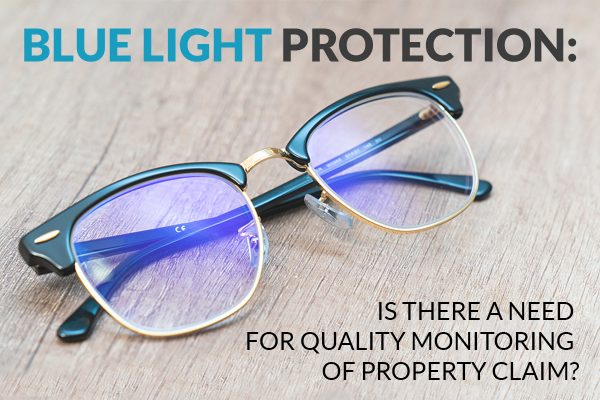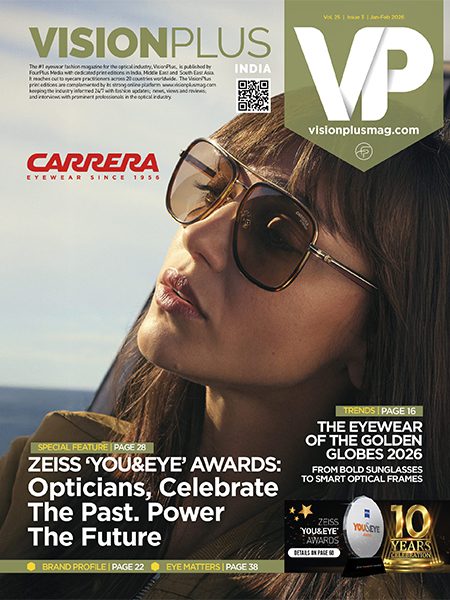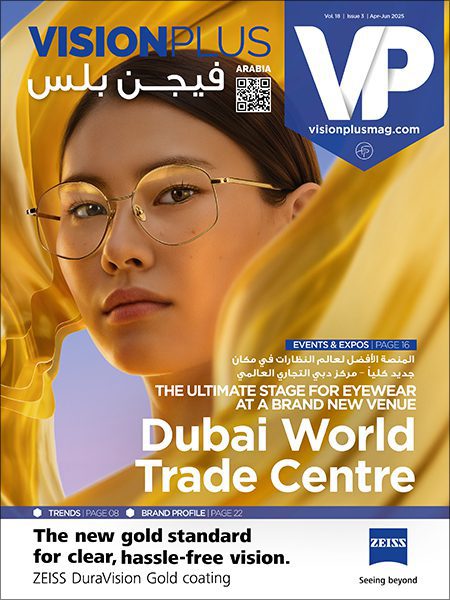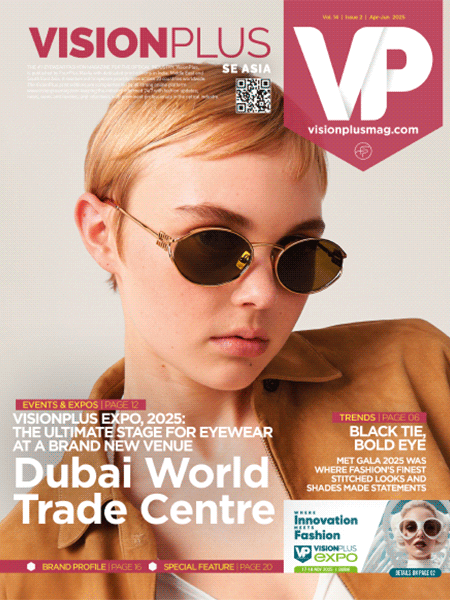
Blue Light Protection - Is There A Need For Quality Monitoring Of Property Claim?
Blue cut spectacle lenses and its claims as a need for eye Heath is a trending subject in optical business community as well as customers of eyewear products. Is there a need to bring in standardisation in our optical sector for claims relating to its health benefits?
Spectacle lenses which block the Blue mood light or the short wavelength are marketed to relieve eye strain and discomfort caused due to digital devices. They are also claimed to be improving sleep and protect the eye from damages to the retina and has seen the booming market in the recent times. However, in the interest of the sellers and users of these lenses, isn’t there a necessity to have a certification system to authenticate the quality of lens in optical trade?
We asked two seasoned professionals to share their views: One being Professor Monica Chowdhury on the other hand is presently the Director School of health sciences, Ansal University, with over 30 years of academic and clinical experience.
Ramachandran Parthasarathy and the other being Prof. Monica Chowdhury. The other is Ramachandran Parthasarathy, currently a Business Consultant and a pioneer in the organised lens industry. He has been in the eye care sector management consultant over three decades and has been instrumental in transformation and innovations towards technology-focused products.
Their views on this topic are crucial and here's what they say:
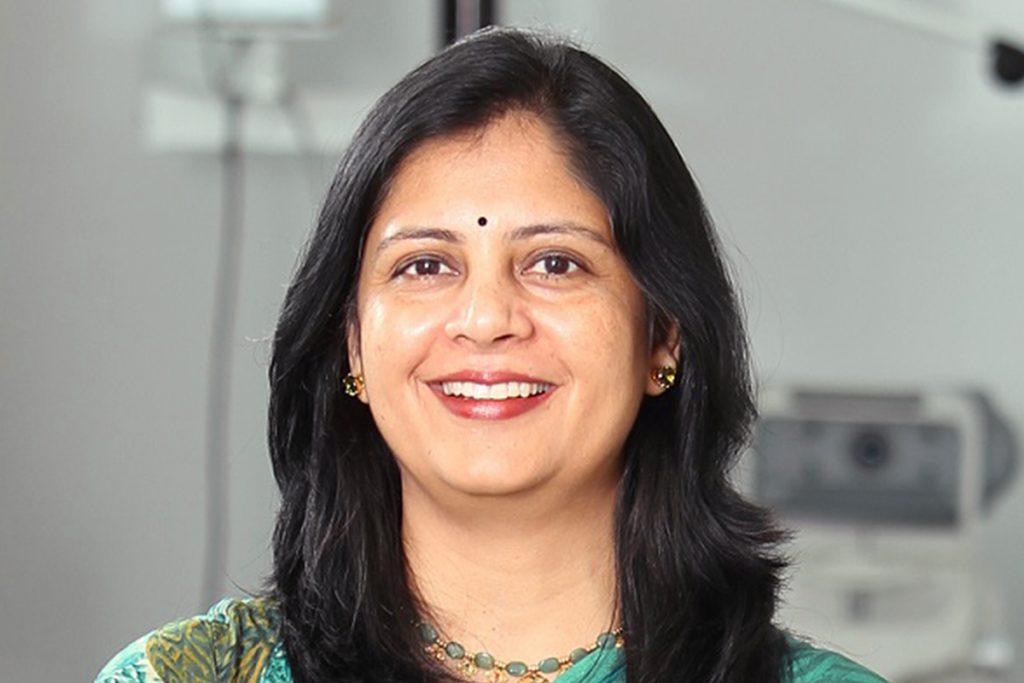
Prof Monica Choudhary:
Spectacle lenses which block the Blue light or the short wavelength are marketed to relieve eye strain and discomfort caused due to digital devices. They are also claimed to be improving sleep, protect the eye from damages to the retina and has seen the booming market in the recent past.
I reviewed some of the research articles to get the answer on Blue – Block lenses and there seems to be incomplete clinical evidence to prove either of these questions-
Whether Blue Block lenses enhance visual performance compared to standard spectacle lens;
- Whether it provides protection to the macula or prevent ARMD;
- Does it really prevent fatigue while using digital screens;
- Does using it keeps someone alert and improves the sleep quality.
Computers are part of life now and all individuals spend long hours on these devices and are almost all day mainly focused on the screen doing work. Such conditions of work will obviously lead to all asthenic symptoms of headaches, eyestrain, discomfort, difficulty in focusing etc. or in other words the computer vision syndrome. These symptoms can be due to uncorrected refractive error, accommodation and convergence anomalies, marginal dry eyes or any other ocular abnormality.
Whenever the claim of patient’s comfort is made with BB lenses one cannot be sure of the control of other variables which contribute to the similar symptoms.
A study by Leung et al did not find any effect of the contrast acuity and colour vision test which is usually a concern raised by the BB lenses. It was also found that there was no difference in subjective assessment of sleep quality of the users of BB lenses. Some high-quality BB blocking lens brands had statistically significant improvement in self-claimed sleep quality.
Talking about protecting long term macular health, no study has studied these long term changes. The wavelength 460-490 nm by international exposure limits even on prolonged viewing has shown to be lower, hence one cannot be sure of this claims.
So there is a need for better study design, more reliable sampling methods, less bias and control of all variables before one can scientifically believe that the BB lenses perform genuinely to whatever claimed.
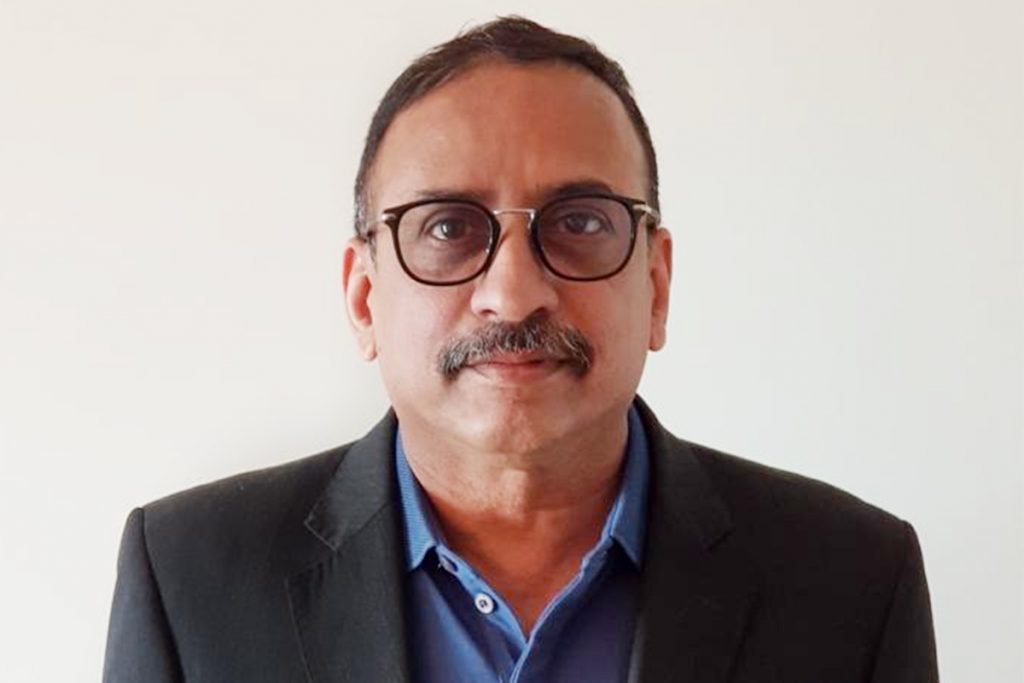
Ramachandran Parthasarathy:
Let me start by stating that I have limited knowledge on the technical aspects of the lens but coming from the wearer point that they must be assured of the product claims.
Our eyes are faced with LEDs presently in a large number of screens especially tablets and smartphone screens. On the other hand, the timing and quantity of light and darkness both affect sleep in humans as per some of the studies published internationally and perhaps it is a larger subject.
Several lens manufacturers across the world have now blue-blocking technology either as a coating or as a substrate sensing the opportunity for value addition.
It is perhaps pertinent to bring to the discussion forum that the spectacle lens or plano lenses in sunglasses must allow blue-turquoise range (which is said to be in layman terms good blue) resulting in helping contrast sensitivity and mood of the individual. Hence it is imperative that the lens must filter out harmful blue-violet light emitted especially by screens while allowing beneficial light to pass through the lens and not cut the entire blue light.
Now comes the standardisation of blue cut. Needless to mention as most of us are aware that these lenses are primarily imported majorly from China and other Asian countries and sold into India.
There is a need to bring in standardisation in our optical sector especially for claims relating to health benefits are concerned. Having said that there are many retailers in India having their own methodology of Quality Control but a global standardisation is the need of the hour.
Time for us to introspect and have the nationally represented associations of the eye care industry come together and formulate a mechanism for having the lenses certified for the claims and its product attributes. It will benefit the industry overall if these kinds of lenses are tested in an authorised testing laboratory. This will benefit the consumers at large and in the bargain, the entire supply chain will get more organised in a population wherein there is growing space for offering products addressing to the needs of correction, prevention and protection of eyes.

